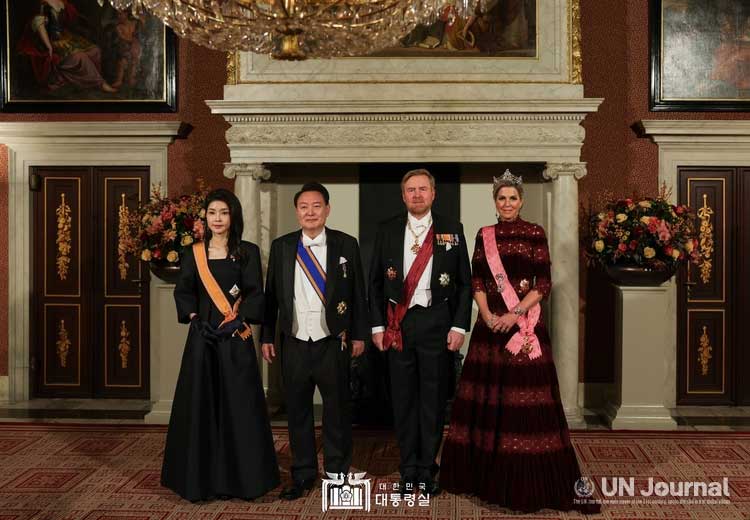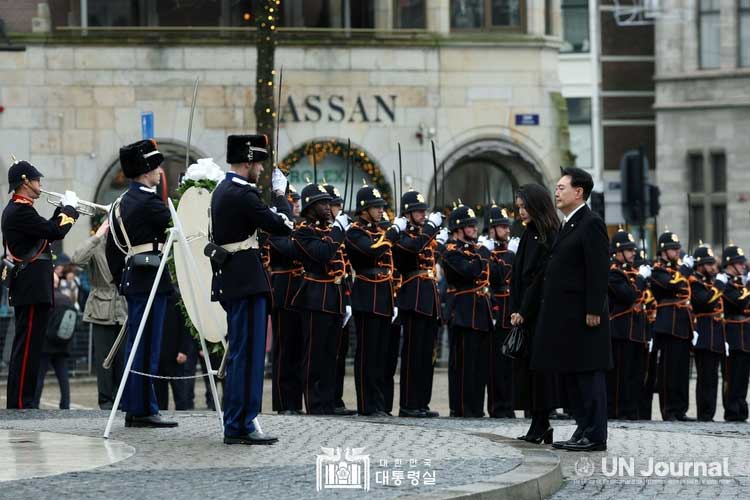President Yoon Suk-yeol’s government has about 120 national tasks. Under the national vision of “Korea again, a country of new people,” the Yoon administration has been going all-out to achieve six big national goals with the attitude of Korea’s No. 1 salesman.
However, the government is facing serious difficulties due to stiff opposition from the giant opposition party and is under some pressure to fulfill the national tasks. However, the Yoon administration has been actively earning foreign currency for its goals by holding a series of meetings with heads of foreign state not only in Korea but also around the world.

President Yoon had already set 23 “promises to the people” in accordance with the national goals, but the keywords emphasized by the Yoon government are common sense and fairness, fostering core strategic industries and welfare policies for the weak, science and technology, youth, freedom and solidarity, veterans, and balanced development. In accordance with the promises made to the people, the Yoon administration’s 120 national priorities include the so-called “three reforms” of labor, education, and pension reform, welfare for the vulnerable, nuclear phase-out, and regulatory innovation.
Among them, great achievements are expected in the fields of foreign affairs, defense and protection, and science. The Yoon administration, which is realizing the values of freedom and solidarity based on a stronger-than-ever U.S.-ROK alliance, began with President Yoon Suk-yeol, who was a salesman in these fields. In addition to fulfilling the national tasks of a strong national defense and top-class veterans’ affairs, President Yoon is also highly praised for laying the foundation for Korea to become one of the top seven scientific powers. If we look at the achievements of the government, including welfare policies for the weak, a dynamic economy, and youth policies, we can understand the direction of the government and its blueprint for change.
President Yoon has been traveling tirelessly on the diplomatic scene in pursuit of his national goal of becoming a global pivotal nation contributing to freedom, peace, and prosperity. Since his inauguration, he has held summits with more than 60 countries in a month, including his recent visit to the United Nations General Assembly, where it was reported that “such a leader will not be seen in diplomatic history for 100 years.”
President Yoon told the cabinet meeting that he met with more than 150 heads of state and government in bilateral meetings and appealed for support for the Expo. But while the Expo bid failed, there were diplomatic successes.
President Yoon normalized relations with Japan as a forward-looking partner, and on the occasion of the 70th anniversary of the ROK-US alliance, the alliance evolved beyond a security alliance to a value alliance. Based on shared values and pursuit of common interests, the Korea-US-Japan relationship has been transformed into a comprehensive partnership for a sustainable future.

In addition, the future-oriented value diplomacy based on the rule of law of freedom and human rights is further strengthening its role as a global pivotal country. Through his speeches at multilateral meetings and in various countries, President Yoon has outlined his agenda, proposing solutions to global issues such as the pandemic geopolitical conflicts and climate change, as well as the war in Ukraine and Israel-Hamas war.
Yoon’s speech at the Group of 20 (G20) summit in New Delhi, India, on Sept. 10 best illustrates the direction of his diplomacy.
“We are facing unprecedented and complex crises and challenges, such as pandemic geopolitical conflicts, climate change, and the war in Ukraine,” Yoon said in the third session of the day’s theme, “One Future.” “For a free, peaceful, and prosperous future, we must defend and strengthen a norm-based international order based on the spirit of solidarity and cooperation,” he said. “While firmly upholding universally valid norms, we must improve and supplement the norms of the past to meet the needs of the times and create new norms for the future.”
“A solid veterans’ system is the foundation of a strong national defense,” Yoon said in his remarks at the 67th Memorial Day ceremony on June 6, 2022, a month after his inauguration, adding, “we must build a country where heroes in uniform are respected.” He also showed his commitment to a strong national defense by saying, “We will build more fundamental and substantial security capabilities while containing North Korea’s nuclear and missile threats.”
One by one, the administration is delivering on these promises. The transformation of the Office of National Veterans Affairs into the Ministry of National Veterans Affairs has bolstered the realization of the national task of ‘top-class veterans’. We are not only spreading the culture of veteran’s affairs such as ‘Heroes in Uniform’ but also improving the overall veteran’s affairs policy and creating a country that respects and remembers those who sacrificed for the country and its people.
The Washington Declaration, announced on April 26, 2023, during his state visit to the United States, includes measures to strengthen extended deterrence through a stronger U.S.-ROK alliance. It is a plan to effectively respond to North Korea’s escalating nuclear and missile threats.
As such, national tasks in the areas of defense and veterans’ affairs are being carried out faithfully. On September 15, President Yoon attended the 73rd anniversary of the Incheon landing operations on the Korean Peninsula and reiterated, “We will further strengthen security cooperation between South Korea, the United States, and Japan based on a solid joint defense posture, while securing an overwhelming response capability to the North Korean threat.”
President and Mrs. Yoon also paid a three-day state visit to the Netherlands from Nov. 11 to 15 at the invitation of King Willem-Alexander of the Netherlands. The state visit, the first to the Netherlands since the establishment of diplomatic relations in 1961, strengthened the strategic and future-oriented cooperation between the two countries and opened a new chapter in bilateral relations.
The Netherlands has been a steadfast ally of the Republic of Korea since the outbreak of the Korean War, when the country actively supported the UN Security Council’s military aid resolution and quickly deployed troops to Korea. Among the 22 UN countries that participated in the Korean War, the Netherlands was the fourth fastest to join after the United States, the United Kingdom, and Australia, and during the Korean War, 5,322 soldiers participated in revolutionary battles such as the Battle of Hoengseong and the Battle of Inje.
To commemorate the 70th anniversary of the armistice, the President met with Korean War veterans and their families along with the King of the Netherlands at the Royal Palace in Amsterdam to express his gratitude in person. President Yoon emphasized that the noble sacrifices of these men and women have made it possible for the Republic of Korea to become what it is today, and that the Republic of Korea and the Netherlands are excellent partners on the international stage.
In addition to providing veterans’ welfare and honor at home, it is also in our national interest to honor our reliable allies who quickly deployed to Korea immediately after the outbreak of the Korean War. Above all, it is indeed a great achievement in our diplomatic history to have met with more than 150 heads of state in such a short time and held talks with more than 60 foreign heads of state in a month, despite a busy schedule both at home and abroad.
